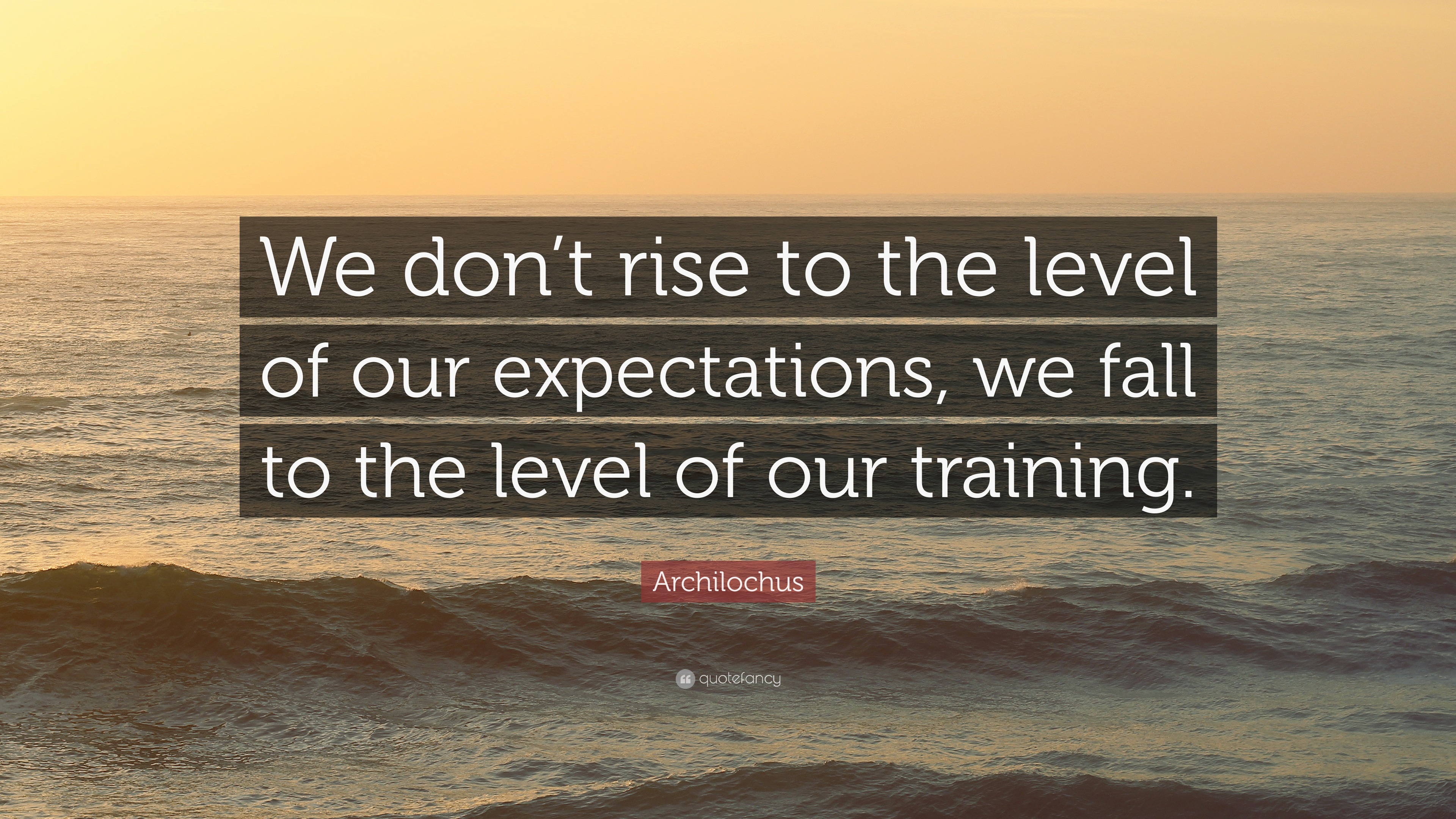People rise to our high expectations and don t rise if we have low ones

People rise to our high expectations (and don’t rise if we have low ones).

Have you ever noticed that people tend to fulfill the expectations we have of them? It’s as if our belief in their capabilities has a direct impact on their performance. This psychological phenomenon is known as the Pygmalion effect or the self-fulfilling prophecy. According to the Pygmalion effect, people rise to the level of our high expectations, while they don’t rise if we have low ones.
Research has consistently shown that our expectations have a profound influence on human behavior. When we hold positive expectations of others, they tend to exhibit higher levels of motivation, confidence, and performance. On the other hand, if we have low expectations, individuals are more likely to underperform and lack the drive to reach their full potential.
Imagine a teacher who believes that a particular student is intelligent and talented. This positive belief influences the teacher’s behavior towards the student, providing them with additional support and guidance. Consequently, the student feels valued and capable, leading to increased efforts and ultimately improved academic performance. In contrast, if the teacher believes the student is incapable, they may unintentionally create a negative environment that hampers the student’s development.

The same principle applies in various aspects of life, including the workplace. Managers who have high expectations of their employees often witness impressive results. By expressing confidence in their team members, managers inspire them to push beyond their limits, leading to increased productivity and job satisfaction.
Moreover, this phenomenon extends to interpersonal relationships as well. When we believe in someone’s potential, we tend to provide them with opportunities to grow and succeed. On the contrary, when we hold limited expectations, we may unknowingly hinder their progress and discourage them from reaching their goals.
It’s important to recognize the power our expectations have over others. By setting high expectations, we can positively influence their performance and help them unlock their full potential. However, it is crucial to strike a balance. Unrealistically high expectations can put undue pressure on individuals and lead to feelings of failure. Therefore, it is essential to set expectations that are challenging yet attainable.
In conclusion, the Pygmalion effect demonstrates that individuals rise to our high expectations and do not reach their potential if we have low ones. Our beliefs in the capabilities of others directly impact their performance, motivation, and overall development. By being mindful of the power our expectations hold, we can create an environment that fosters growth and encourages individuals to surpass their own limitations.
Source: Best Life Online: 50 Psychology Facts That Will Change How You See the World
Tags
Share
Related Posts
Quick Links
Legal Stuff

